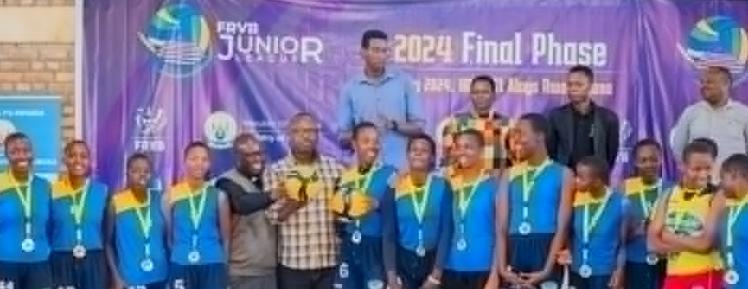Africa-Press – Rwanda. Just like academic excellence, talent in sports, arts, or music, reflects discipline, creativity, and leadership qualities essential for national progress. Not every gifted student shines through traditional exams, but that doesn’t mean they should be left behind.
In the U.S, over 180,000 student-athletes are funded through NCAA athletic scholarships. Up to 3.5% of high school athletes go on to play college sports. Many receive partial or full scholarships and thousands transition into professional leagues or careers in sports medicine, coaching, and management.
Closer to home, Nigeria, Kenya, and South Africa also support youth through sports scholarships, creating a pipeline of opportunity and national pride.
These scholarships don’t just reward talent. They fund education, open global doors, and lead to professional careers.
Too often, Rwandan youth in football, basketball, or athletics give up their dreams due to lack of institutional support. Talent-based scholarships would allow them to continue their education while excelling in their craft. Without these structures, we lose potential national icons.
For over 10, maybe 15 years, our school sports system has failed young talent. Year after year, boxes get checked, reports get filed, and people proudly say, “the competition ended successfully,” but with what outcome?
Where is growth? What is the legacy?
Rwanda’s Inter-Schools Championships just ended across various disciplines, and yet no first division team has announced a single signing from these competitions. No university has awarded a scholarship based on sports merit. Our local teams return from international tournaments without including even one young athlete on their rosters for mentorship or exposure. This isn’t just disappointing. It is a systemic neglect.
We sit in endless panels debating drug abuse among the youth but the real question on the ground is what does a child who finishes school at 1 or 2 p.m. do until 8 p.m. when their parents get home? Homework? Yes, but for how long? And after that?
Where are the safe spaces? The football fields, the courts, the coaches? Where is the system that helps them grow mentally, physically, and emotionally?
Let’s stop pretending and rather swallow the pride and accept that something is wrong. Let’s check our education and sports systems.
When was the last time we saw a talent like Jean Baptiste Mugiraneza, Steve Hagumintwari, or Aristide Mugabe rise from the school system? When was the last time University of Rwanda gave a scholarship based on sports merit?
It is important that we ask ourselves these questions because we keep asking for a drug-free generation, but refuse to give the youth something to run to.
This won’t be fixed by spending hundreds of hours debating in fancy hotels. We need to put our boots on, go out there, and actually put in the work on the fields, in the schools, and in the communities where the real change happens because this problem isn’t theoretical. It’s visible in the growing disconnect between schools and the sports sector.
It is, unfortunately, visible in the wasted talent that never gets discovered, in the youth who turn to streets instead of stadiums, and in the dreams that die silently due to neglect.
We lack strong inter-school leagues. We lack coaches with long-term contracts. We lack investment in talent development and yet, we act surprised when nothing great comes out of the system.
Let’s stop glamorizing policy and start humanizing action.
This is about creating safe paths for children to grow into powerful, disciplined, and healthy citizens.
I dare to say; bring back real school competitions, mentorship and structured after-school programmes, as well as the urgency to look for talent in places that don’t wear polished shoes.
Sport is more than play. It’s an economic engine. Investing in talent development creates jobs (in coaching, events, therapy), boosts national identity, and brings global recognition and tourism.
Many of the most talented athletes come from underprivileged backgrounds. Scholarships offer them a path to dignity, purpose, and leadership. These are not just athletes. They are potential future doctors, engineers, and coaches.
Rwanda is full of gifted young people. We just stopped showing up for them.
If we want to fix the future, we need to start with the system. And the time is now. This also means that schools and universities, especially international ones, must initiate and expand scholarship schemes for talented youth.
The government and the private sector should co-create funding frameworks for youth development through talent.
For More News And Analysis About Rwanda Follow Africa-Press






